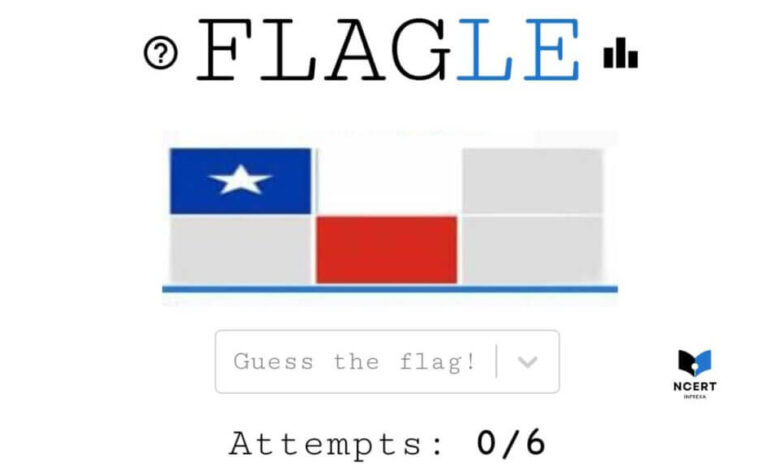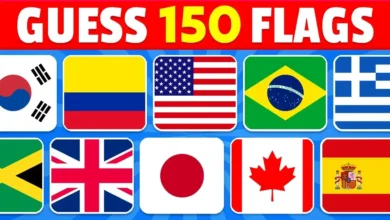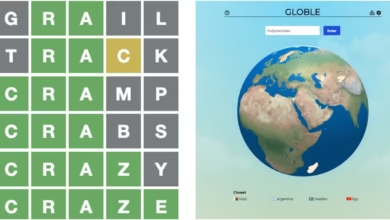The Rise of Flagle: A New Trend in Online Gaming and Word Puzzles

In recent years, the online gaming world has witnessed a surge in the popularity of word-based puzzle games. From the global phenomenon of Wordle to its countless spin-offs, these games have captivated millions of players worldwide. Among these, Flagle has emerged as a unique and engaging addition to the genre. Combining the thrill of guessing with the educational aspect of learning about world flags, Flagle has carved out a niche for itself in the crowded online gaming market. This article delves into the origins, gameplay, appeal, and future of Flagle, exploring why it has become a favorite among puzzle enthusiasts.
What is Flagle?
Flagle is a web-based puzzle game that challenges players to guess a country’s flag within a limited number of attempts. Inspired by the mechanics of Wordle, Flagle presents players with a blank flag template and provides feedback after each guess. The goal is to identify the correct flag using clues such as colors, patterns, and symbols. The game is both entertaining and educational, offering players a chance to learn about different countries and their flags while testing their problem-solving skills.
The game’s simplicity and accessibility are key factors in its popularity. Like Wordle, Flagle is free to play and requires no downloads or installations. Players can access it through their web browsers, making it easy to enjoy on both desktop and mobile devices. The daily format, where a new flag is presented each day, adds an element of anticipation and encourages players to return regularly.
The Origins of Flagle
Flagle is part of a growing trend of Wordle-inspired games that cater to specific interests. Wordle, created by software engineer Josh Wardle, took the internet by storm in late 2021. Its straightforward yet addictive gameplay led to a wave of spin-offs, including games focused on math, geography, music, and more. Flagle is one such spin-off, designed for players who enjoy geography and want to test their knowledge of world flags.
The exact origins of Flagle are unclear, as it was likely developed by an independent creator or small team inspired by Wordle’s success. However, its rapid rise in popularity can be attributed to its unique concept and the growing demand for niche puzzle games. By combining the familiar mechanics of Wordle with the educational aspect of flag recognition, Flagle has managed to stand out in a sea of similar games.
How to Play Flagle
Flagle’s gameplay is simple yet challenging, making it accessible to players of all ages and skill levels. Here’s a step-by-step guide on how to play:
- Access the Game: Visit the Flagle website through your browser. No registration or download is required.
- Start Guessing: You are presented with a blank flag template and a set of color options. Your task is to guess the correct flag by selecting the appropriate colors and patterns.
- Receive Feedback: After each guess, the game provides feedback on your accuracy. Correctly placed colors and patterns are highlighted, while incorrect ones are marked as such.
- Narrow Down the Options: Use the feedback to refine your guesses. With each attempt, you should be able to eliminate incorrect options and get closer to the correct flag.
- Win or Lose: You have a limited number of attempts (usually six) to guess the flag correctly. If you succeed, you win the game. If not, the correct flag is revealed, and you can try again the next day.
The game’s difficulty can vary depending on the complexity of the flag and the player’s familiarity with world flags. Some flags are easily recognizable, while others may require more research and deduction.
Why Flagle is So Popular
Flagle’s popularity can be attributed to several factors:
1. Educational Value
One of the standout features of Flagle is its educational aspect. As players engage with the game, they learn about the flags of different countries, including their colors, symbols, and cultural significance. This makes Flagle not just a game but also a tool for expanding one’s knowledge of world geography.
2. Simple Yet Addictive Gameplay
Like Wordle, Flagle’s gameplay is easy to understand but difficult to master. The limited number of attempts adds a layer of challenge, while the daily format keeps players coming back for more. The satisfaction of correctly guessing a flag after a series of deductions is immensely rewarding.
3. Global Appeal
Flags are universal symbols that resonate with people from all corners of the world. Flagle’s focus on flags makes it appealing to a global audience, as players can connect with the game on a personal level by recognizing flags from their own countries or regions.
4. Social Sharing
Flagle encourages social interaction by allowing players to share their results on social media platforms. This feature, borrowed from Wordle, fosters a sense of community and friendly competition among players. Sharing daily scores and comparing strategies has become a popular trend among Flagle enthusiasts.
5. Nostalgia and Curiosity
For many players, Flagle evokes a sense of nostalgia, reminding them of school days spent learning about geography and flags. At the same time, the game satisfies their curiosity by introducing them to flags they may not have encountered before.
The Educational Benefits of Flagle
Beyond its entertainment value, Flagle offers several educational benefits:
1. Improved Geographic Knowledge
By regularly playing Flagle, players become more familiar with the flags of different countries. This knowledge can enhance their understanding of world geography and cultural diversity.
2. Enhanced Problem-Solving Skills
Flagle requires players to use logic and deduction to identify the correct flag. This process helps sharpen critical thinking and problem-solving skills, which are valuable in various aspects of life.
3. Cultural Awareness
Flags often incorporate symbols and colors that reflect a country’s history, culture, and values. By learning about these elements, players gain a deeper appreciation for the diversity of the world’s cultures.
4. Memory Improvement
Remembering the details of different flags can improve memory and recall abilities. This is particularly beneficial for students and individuals who want to keep their minds sharp.
The Future of Flagle
As Flagle continues to grow in popularity, its future looks promising. Here are some potential developments and trends to watch for:
1. Expanded Features
Developers may introduce new features to enhance the gameplay experience. For example, additional difficulty levels, timed challenges, or multiplayer modes could make the game even more engaging.
2. Mobile App Development
While Flagle is currently a web-based game, the development of a dedicated mobile app could attract a larger audience. An app would offer greater convenience and accessibility, allowing players to enjoy the game on the go.
3. Collaborations and Partnerships
Flagle could collaborate with educational institutions, travel agencies, or cultural organizations to promote its educational value. Such partnerships could lead to sponsored content, special editions, or themed challenges.
4. Community Engagement
The Flagle community is likely to grow as more players discover the game. Online forums, social media groups, and fan-created content will play a key role in fostering a sense of belonging among players.
5. Global Expansion
As Flagle gains traction in different regions, it may incorporate localized versions or additional languages to cater to a wider audience. This would further enhance its global appeal.
Tips for Mastering Flagle
For those new to Flagle or looking to improve their skills, here are some tips to help you master the game:
- Start with Common Flags: Begin by familiarizing yourself with the flags of well-known countries. This will give you a solid foundation to build upon.
- Pay Attention to Patterns: Many flags feature recurring patterns, such as stripes, crosses, or circles. Recognizing these patterns can help you narrow down your options.
- Use Process of Elimination: If you’re unsure about a particular flag, use the process of elimination to rule out incorrect options based on the feedback provided.
- Research Unfamiliar Flags: Don’t be afraid to look up flags you’re unfamiliar with. This will expand your knowledge and improve your chances of success in future games.
- Stay Consistent: Playing Flagle regularly will help you retain information and improve your skills over time.
Conclusion
Flagle is more than just a game; it’s a celebration of global diversity and a testament to the enduring appeal of word-based puzzles. By combining the thrill of guessing with the educational value of flag recognition, Flagle has captured the hearts of players around the world. Its simplicity, accessibility, and social sharing features make it a standout addition to the online gaming landscape.
As the game continues to evolve, it has the potential to become a lasting cultural phenomenon, inspiring players to learn, connect, and challenge themselves in new ways. Whether you’re a geography enthusiast, a puzzle lover, or simply looking for a fun way to pass the time, Flagle offers something for everyone. So why not give it a try? You might just discover a new passion for flags and the stories they tell.




